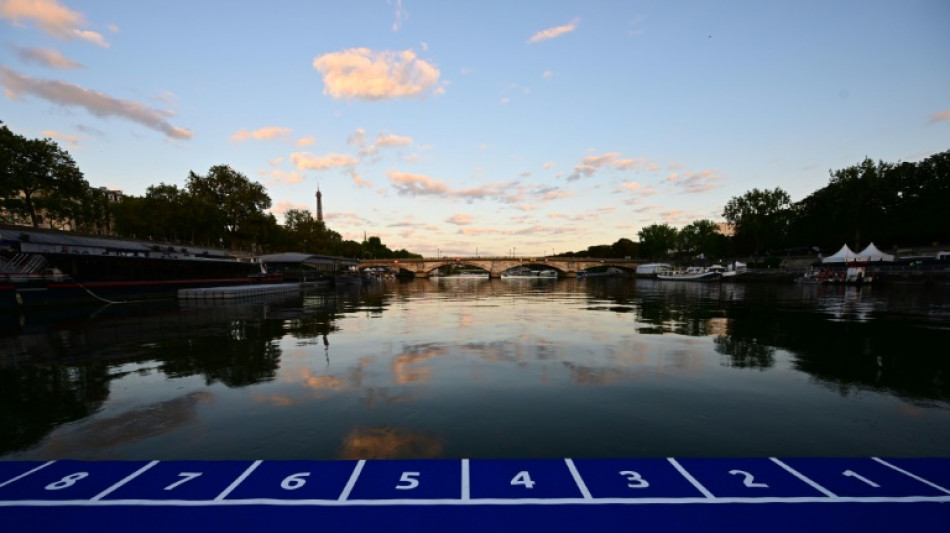The swimming stage of a triathlon in Paris's Seine River was cancelled on Sunday due to pollution, organisers announced, raising further questions about holding competitions there during the 2024 Olympics.
The mixed relay triathlon is the third pre-Olympics test event to be affected by excessive E. coli bacteria in the water, but organisers insist the Seine will be fit to host events next year.
The triathlon was changed to a duathlon only involving cycling and running after analyses of the water quality did not offer the "necessary guarantees", said the Paris Olympics organising committee and governing body World Triathlon.
The same solution was reached for a para-triathlon test event on Saturday, while the World Aquatics Open Water Swimming World Cup was cancelled altogether earlier this month.
As organisers investigated the source of Saturday's elevated E. coli readings Tony Estanguet, the head of the Paris 2024 organising committee, stressed there was no "Plan B" for next year's sporting extravaganza.
"There is no solution to move the event, the triathlon and open water swimming will be held in the Seine next year," he insisted.
"From the start, we have remained on the same project, to organise the triathlon and para-triathlon in this extraordinary site. You have a beautiful setting between the Grand Palais, the Invalides, this Alexandre III bridge. This course, I believe, is unanimous."
The cause of this impasse in the Seine remains the same: the concentration of Escherichia Coli (E. coli) bacteria in the river.
Storms, causing heavy rainfall leading to overflowing sewers spilling into the river, are not the cause, officials insist.
"An investigation is underway to find the cause of this degradation but, to date, we have not yet found an explanation," Pierre Rabadan, deputy mayor of Paris in charge of Sport and the Olympics told AFP.
"We missed out by very little," said French sports minister Amelie Oudea-Castera.
"It's extremely encouraging, you have to see the glass half full. I repeat, we will be ready."
- 'Still being developed' -
A triathlon has never been converted into a duathlon at the Olympics since its introduction at the 2000 Sydney Games.
"It would be a shame but we adapted to a duathlon this morning," said Beth Potter, winner of the women's race on Thursday and second in Sunday's mixed relay with the British team.
"Hopefully by next year it will be okay. We saw that for the individual races it was okay, so hopefully it will be a triathlon."
Britain's Alex Yee, winner of the men's race, added: "They are saying the water filtering is still being developed. So by next year it will be perfect.
"What they are doing is hugely historic, they are leaving a legacy after the Games. We can only applaud them."
Local authorities are working to correct some 23,000 poor connections in private homes whose wastewater ends up in the river.
"We are a quarter of the way there," said Oudea-Castera.
French world champion Leo Bergere said he had not "heard that athletes had come out sick" from the men's race on Friday, the day on which the first below standard samples were taken.
"The objective was to make the Seine swimmable in 2024," added Estanguet.
"This test comes along the way, the plan has not reached maturity. There are still great efforts, new means being deployed to improve the quality of the water in the Seine. As we have seen, it is improving month by month and will continue to improve."
Olympic open water swimming has frequently been hit by pollution concerns.
At the end of the test event in 2019 ahead of the Tokyo Olympics, swimmers protested against the quality of the water in Tokyo Bay.
At the Rio Olympics in 2016, the prospect of swimming in the polluted Guanabara Bay also made headlines.
H.Majumdar--BD
